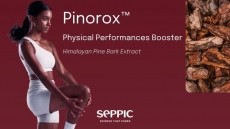Hangover cures keep coming despite FDA action

Enforcement action
In mid 2020 the US Food and Drug Administration sent seven warning letters to companies marketing supplements aimed at helping consumers recover from or prevent hangovers. At the time FDA reiterated the position that a hangover is essentially a medical condition, and making any claim about addressing it is a disease claim, which de facto makes such a product an unapproved drug.
“Dietary supplements that claim to cure, treat, mitigate or prevent hangovers could potentially harm consumers, especially young adults,” said Steven Tave, then head of FDA’s Office of Dietary Supplement Programs. “Consumers may get the false impression that using these products can prevent or mitigate health problems caused by excessive drinking. Dietary supplements are not a substitute for responsibly limiting one’s alcohol consumption.”
FDA has taken a consistent line on the inherent dangers of alcohol consumption, and that marketers who offer consumers ways to feel well after having had one too many are treading on dangerous ground. That was the underpinning of the Agency’s move to take caffeinated alcoholic beverages off the market in 2011. The products combined alcohol with high dosages of caffeine. FDA claimed that the caffeine’s stimulating effects might lead consumers to misjudge how intoxicated they actually were.
Hangover cures keep coming
But despite these and other FDA moves, the hangover cures keep coming. Most of these products claim that their formulas of vitamins, minerals and other ingredients replace nutrients that are depleted during alcohol consumption, thus shortening hangovers and damping down symptoms.
A German company called CDM Medical LLC (which also goes by the name Biotake GmbH) takes this a step further. The company has churned out more than 20 press releases in the past few months relating to the launch in the United States of its Alcovit product. The formula reportedly combines antioxidants and vitamins with zeolite clinoptilolite, a powdered mineral ingredient claimed to have absorptive properties. The company claims this can actually prevent some of the alcohol consumed from reaching the blood stream, pointing to a pilot study done in 2015 on 12 healthy drinkers.
Attorney: Proliferation of products comes as no surprise
The fact that these products still proliferate in the market despite FDA frowning in their direction comes as no surprise, said Ivan Wasserman, a partner in the law firm Amin Talati Wasserman. While the Agency has taken the stance that a hangover is a disease condition, others aren’t so sure and are willing to risk a warning letter.
“There are many examples of claims and ingredients that are prevalent in the marketplace despite FDA having taken a position, expressed in Warning Letters, speeches, or elsewhere , that they are unlawful. In that regard, supplements marketed to prevent hangovers are not unique,” Wasserman told NutraIngredients-USA.
“What makes hangover preventing supplements somewhat unique, and different from Covid-19 preventing supplements for example, is that consumers do not consider hangovers to be a ‘disease,' and reasonable minds can differ with the FDA’s interpretation of DSHEA with respect to such claims. Between that, and the many ways to discuss a supplement’s science-backed ability to impact the effects of alcohol consumption, some companies may have the confidence to party even though they may have to deal with a headache in the morning,” he added.
Growing market, attractive demographic drives new launches, consultant says
Consultant Steve Hanson, principal in the firm Nutrasocial, said the growing market is key to the attraction of this category for marketers.
"Anytime a health condition impacts a significant number of people, it's very likely that you're going to see a supplement addressing it. According to Euromonitor, it estimates the number of hangovers per year in the United States at 2.6 billion so it is a sizable addressable market. Many of these products address rehydration and energy and are available as drinks, powders to mix into solution or as tablets or capsules,” he said.
Hanson said another attraction is that the consumer demographic in this category skews younger than the average supplement user, meaning new products might have less competition. The whole category has a bit of a ‘get rich quick’ feel about it, he said.
“Oftentimes products making claims inferring or stating 'hangover cure' are pushing the envelope in terms of acceptable language. Individuals with industry experience know those type of claims are quick to get a company into trouble. Also, I think many hangover supplements are focused on increasing energy or detoxification and don't have significant supporting science specific to hangovers. This lack of substantiation makes them an easy target,” he said.
"The industry has seen its share of hangover supplements enter and exit the market due to FDA scrutiny. It seems to be one of those health conditions that draws companies looking to generate quick revenues and do it in a not so 'industry acceptable' way. Fortunately, the industry has grown up and is starting to self police some of these bad actors,” Hanson added.

















